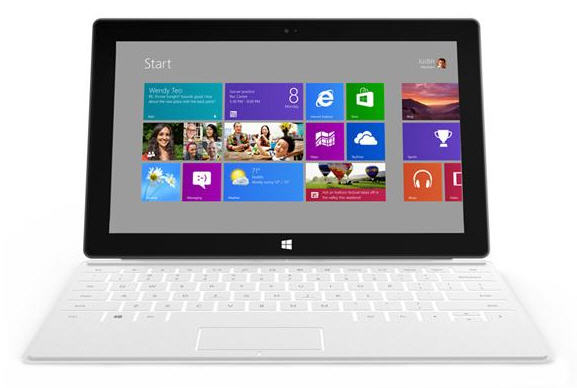Acer: Microsoft Surface Tablet Will Have ‘Huge Negative Impact’

Acer chief executive JT Wang has predicted the ‘Surface’ line of tablets will have a ‘huge negative impact’ for the PC industry
JT Wang, chairman and chief executive of computer maker Acer, has publicly raised concerns over Microsoft’s move into hardware with its “Surface” tablet, warning it will have a “huge negative impact” for the Windows 8 ecosystem.
Earlier this year, Acer, the world’s fourth-largest computer manufacturer, questioned how successful the Surface tablet range would be but raised fresh doubts in an interview with the Financial Times on Monday . The Surface tablet is due to launch on 26 October alongside Windows 8.
‘Think twice’
“We have said [to Microsoft] think it over,” Wang said. “Think twice. It will create a huge negative impact for the ecosystem and other brands may take a negative reaction.”
Acer and others are currently preparing tablets based on Microsoft’s Windows RT and Windows 8 operating systems.
 Surface will also come in two models, one for the two processor families on which the new Windows operating system will run. The Windows 8 Surface will run an Intel Ivy Bridge class x86 processor while the Windows RT model will run an ARM-based processor from Nvidia.
Surface will also come in two models, one for the two processor families on which the new Windows operating system will run. The Windows 8 Surface will run an Intel Ivy Bridge class x86 processor while the Windows RT model will run an ARM-based processor from Nvidia.
Industry analysts, while predicting confusion from hardware partners such as Acer, have said Microsoft’s move into hardware appears to be spurred by Apple’s success in tablets and smartphones. Google, too, has opted to follow in Apple’s footsteps by buying Motorola Mobility, which will allow it to directly produce devices using its Android software.
“[Microsoft] feels very challenged by what Apple has been able to do particularly with the iPad,” Tom Mainelli, research director for mobile connected devices at IDC, said following Surface’s launch.
Setting a standard
Mainelli said Surface seems to be intended to set a standard for hardware makers to follow. “They made a decision that will potentially alienate some of their partners to come out with a device that they think is competitive. But in a sense, it’s telling manufacturing partners, ‘Let’s see you do it better’,” he said.
This message hasn’t come through for Acer, according to Campbell Kan, the company’s president for personal computer global operations.
“Microsoft hasn’t given us a very clear picture,” Kan told the FT on Monday. “Does it just want to show a new concept to the market and are they going to still work with [PC makers] … or is it going to get into the hardware business?… If Microsoft… is going to do hardware business, what should we do? Should we still rely on Microsoft, or should we find other alternatives?”
In July. Microsoft chief executive Steve Ballmer assured OEMs they would have an opportunity to successfully sell laptops and tablets running Windows 8 even as Microsoft introduces Surface.
“Surface is just [one] design point,” Ballmer said in remarks before an audience of about 16,000 Microsoft partners gathered in Toronto. “It will have a distinct place in a broad Windows ecosystem and the importance of thousands of partners that we have that design and produce Windows computers will not diminish.”
Are you a Firefox enthusiast? Take our quiz.